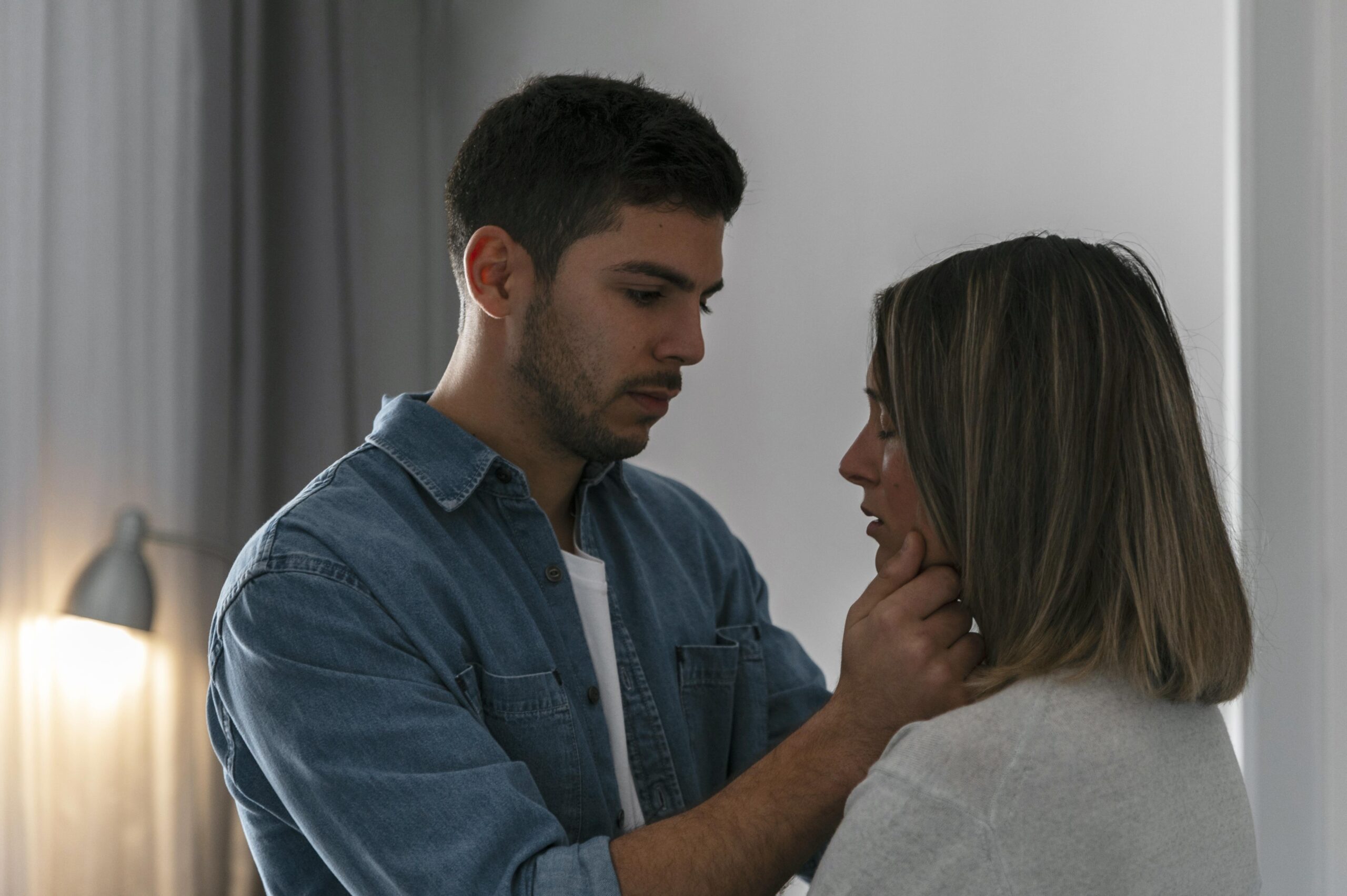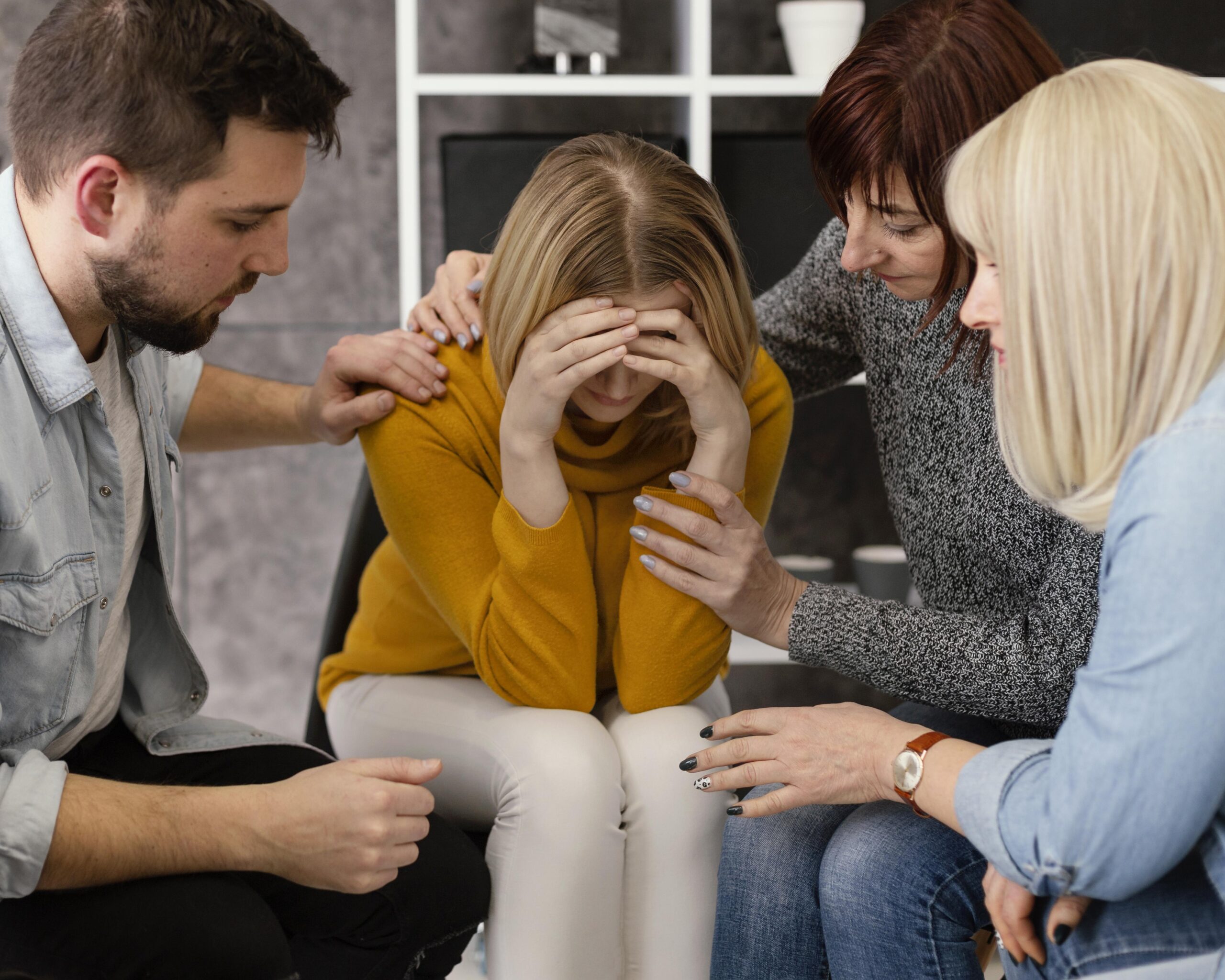The 7 Stages of Grief in a Relationship Break Up and How to Heal | Dr. Harel Papikian
Breakups can feel like the end of the world. Whether it was a short romance or a years-long partnership, the pain of losing someone you deeply cared about can shake your sense of identity and stability. According to the American Psychological Association, nearly 85% of people will experience at least one significant breakup in their lifetime, and in a city like Los Angeles, where relationships are often influenced by demanding careers, relocations, and shifting social dynamics, the emotional impact can feel even heavier.
Breakup grief mirrors the same stages that psychologists identify in loss and bereavement. Understanding these stages doesn’t mean you’ll avoid pain, but it can help you make sense of what you’re going through—and remind you that healing is possible.
Let’s explore the 7 stages of grief in a breakup, with real-life stories from Los Angeles to illustrate how people navigate this difficult journey.
Stage 1: Shock and Denial
The first reaction many people have is disbelief: “This can’t be happening.” Even when the signs were clear, the reality often doesn’t sink in right away.
Take the case of Emily, a 29-year-old graphic designer from Silver Lake. After her three-year relationship ended abruptly, she found herself still setting aside two coffee mugs in the morning, as if her partner would walk into the kitchen any minute. The mind clings to familiar routines, even when the relationship is gone.
Why it matters: This stage can delay emotional processing. People may keep checking their ex’s social media, holding onto false hope, or avoiding conversations about the breakup.
How to move forward: Ground yourself with routines that belong to you, not the relationship. Write out what has changed, or confide in a trusted friend to help you accept the reality.
Stage 2: Pain and Guilt

Once denial fades, the emotional weight crashes down. This stage is marked by sadness, regret, or self-blame.
Daniel, a 35-year-old film editor from Burbank, admitted that he spent weeks replaying the breakup in his head: “If I had just been more attentive, maybe she would’ve stayed.” In Los Angeles, where many people juggle long working hours, guilt about not “making enough time” for a partner is common.
Why it matters: While guilt can sometimes highlight areas for growth, staying stuck in self-blame keeps you from moving forward.
How to move forward: Recognize the breakup as the result of two people’s choices and circumstances—not solely your responsibility. Therapy, journaling, or talking to supportive peers can help release toxic guilt.
Stage 3: Anger

Anger often surfaces next—sometimes directed at the ex, sometimes at oneself, or even at the world.
For example, Sofia, a 27-year-old aspiring actress in West Hollywood, felt intense anger when her partner left during pilot season: “How could he abandon me when I needed support the most?” In a city where rejection is part of daily life for many, a breakup can amplify feelings of betrayal and frustration.
Why it matters: Anger is a natural part of grief, but if unchecked, it can damage friendships, work relationships, and your sense of peace.
How to move forward: Channel anger constructively—exercise, creative outlets, or assertive conversations with trusted people. Acknowledging anger as part of the healing process prevents it from festering.
Stage 4: Bargaining
At this stage, people often try to “undo” the breakup, making promises to themselves or their ex: “If I change, maybe we can try again.”
Marcus, a 40-year-old entrepreneur from Downtown LA, found himself constantly drafting texts to his ex, offering to “do better” or “be more available.” His friends noticed he was stuck in a loop of negotiation, unable to accept the end.
Why it matters: Bargaining keeps you trapped in the past instead of accepting the breakup as final.
How to move forward: Recognize that true healing isn’t about convincing your ex but about rebuilding your sense of self. Limiting contact or creating clear boundaries helps break the bargaining cycle.
Stage 5: Depression

This is often the longest and hardest stage. It’s marked by sadness, loss of motivation, and feeling stuck.
Case in point: Leila, a 33-year-old fashion stylist in Beverly Hills, described how she lost all interest in her work after a breakup: “I’d be surrounded by beautiful clothes and celebrities, but I felt completely empty inside.” Los Angeles, with its constant buzz, can make loneliness feel even sharper when you’re grieving.
Why it matters: Depression after a breakup is common, but it shouldn’t be ignored. Persistent sadness, sleep issues, or withdrawal from life may signal a deeper mental health struggle.
How to move forward: Reintroduce small joys—walks on the beach, reconnecting with friends, exploring LA’s outdoor spaces like Griffith Park. Professional support, including therapy, can provide the tools to navigate this stage safely.
Stage 6: Reconstruction
This stage is about slowly putting life back together—finding routines, building confidence, and learning independence again.
Javier, a 31-year-old musician from Echo Park, turned his breakup into a creative breakthrough. He channeled his emotions into songwriting and built a supportive circle of fellow artists. “I stopped seeing the breakup as the end and started seeing it as a turning point.”
Why it matters: Reconstruction is where healing begins to take shape. You start focusing on personal growth instead of the loss.
How to move forward: Try new activities, expand your social circle, or pursue goals you previously put aside. The energy once invested in the relationship can be redirected toward building a more fulfilling life.
Stage 7: Acceptance and Hope
The final stage isn’t about forgetting your ex but accepting that the relationship is over and that life continues.
Monica, a 36-year-old marketing executive in Santa Monica, reflected after her breakup: “It still hurts sometimes, but I no longer wake up thinking about him. I’m excited for what’s ahead.”
Why it matters: Acceptance allows you to reclaim your independence and embrace the future with clarity. It doesn’t erase the past—it integrates it as part of your story.
How to move forward: Celebrate milestones of healing. Acknowledge your progress and remain open to future relationships built on healthier foundations.
Healing Beyond the Stages
While these seven stages provide a framework, healing isn’t always linear. You may move back and forth between stages before reaching acceptance.
In Los Angeles, the fast-paced lifestyle, social expectations, and frequent relocations can make breakups particularly destabilizing. But they also create opportunities—new connections, personal reinvention, and fresh beginnings.
Working with a therapist like Dr. Harel Papikian, who specializes in guiding individuals through relationship struggles, can provide a supportive space to process emotions, develop resilience, and build strategies for moving forward.
Final Thoughts
Going through a breakup is rarely a straight path — it’s an emotional rollercoaster where good days and hard days may overlap. Statistics show that nearly 65% of adults in the U.S. report experiencing emotional distress lasting more than six months after a breakup, proving that healing isn’t instant, even in a city as vibrant and full of opportunity as Los Angeles. But with time, support, and the right strategies, recovery is possible.
Every stage of grief — from denial to acceptance — serves a purpose. They’re not signs of weakness, but stepping stones that reshape how you see yourself and your future. Take the story of many Los Angeles professionals who, after the collapse of long-term relationships, leaned into therapy, community activities, and self-care — and found new ways to thrive in their careers, friendships, and personal growth.
If you’re currently navigating the grief of a breakup, remember: healing is not about forgetting your past but learning to live with it while creating space for new beginnings. Whether you’re walking along Santa Monica beach trying to clear your mind or reconnecting with hobbies you once loved, each step brings you closer to a healthier, stronger version of yourself.
And if the weight feels overwhelming, reaching out to a professional like Dr. Harel Papikian in Los Angeles can help you untangle the emotional knots and build a path forward. Breakups may feel like endings, but with the right guidance, they can also be the start of something far more fulfilling.

Leave a Reply